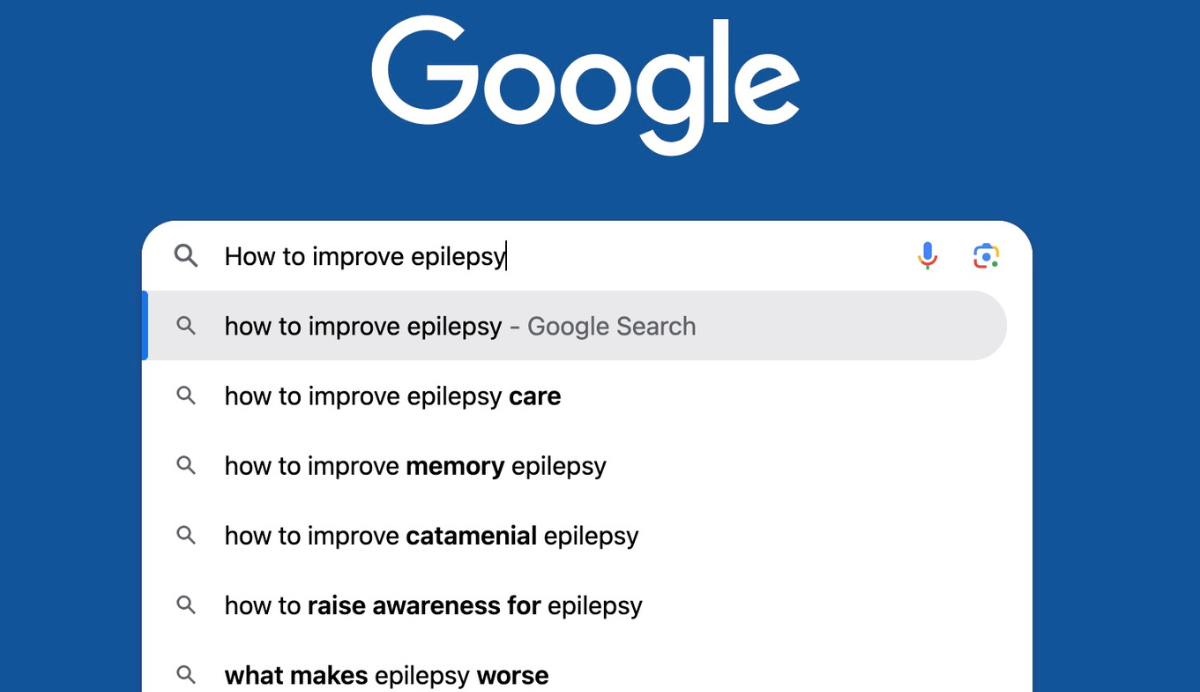Epilepsy Action Australia provides information and support for people living with Epilepsy and their families? Currently how many people come through the “doors” of EAA?
In the past year we have had almost 10,000 contacts through our National Epilepsy Line (1300epilepsy or 1300 374537) which includes both telephone and electronic access streams and receives funding support from the Australian Government. Our specialist Epilepsy Registered Nurses responded to 2,012 of these enquiries from people seeking information and support around living with epilepsy.
The National Epilepsy Line has operated for six years for people living with epilepsy, and their families, and in the past year expanded to include support for General Practitioners and other Healthcare Providers.
Many people with epilepsy and their families and friends are also connected to the organisation through its social media sites, with a following of more than 70,000, particularly through our very popular Facebook page.
As well as support and information what other initiatives/services does EAA offer?
In addition to the National Epilepsy Line, clients with more complex needs are offered an ‘Individual Service Program’ with a specialist epilepsy Registered Nurse, including education for families and personal carers. Booking a telehealth appointment with a Registered Nurse can also be done through the Epilepsy Action Australia website.
Our services are backed by a wide range of evidence-informed resources in various formats including self-management tools, videos, ‘checklists’, and fact sheets developed by experts in their respective fields.
Epilepsy Action Australia also provides a range of community based and online programs for clients, facilitating information exchange and peer support. From time-to-time we run ‘in person’ events (also with online options): in the past year this has included two Youth Conferences (Newcastle in September 2023, and Wagga in May 2024), and the EmpowerHER symposium for women with epilepsy in Brisbane on 6 July 2024.
Continuously innovating, Epilepsy Action Australia implements special programs and projects such as the recent addition of specialised Youth Transition Assessment and Resources to our website. In recent years the organisation has had a focus on developing specialised supports in the areas of youth, women with epilepsy, and interventions to reduce epilepsy related risk, particularly Sudden Unexplained Death in Epilepsy (SUDEP), with evidence-based tools made available in Australia. Epilepsy Action Australia is the partner of global leader SUDEP Action (based in the United Kingdom).
Outside of patient care and support, can you tell us about some of the public programs you are currently involved in?
Every year Epilepsy Action Australia marks international Purple Day (March 26) to raise awareness and funds. The month-long campaign includes a signature Gala Dinner held in Sydney that attracts people living with epilepsy, supporters, and local and interstate researchers and neurologists. In 2024 we also collaborated with other epilepsy organisations across the country under the “Make March Purple” banner to raise epilepsy awareness.
Earlier this year we also participated in a media campaign called Mind the Treatment Gap to reach Australians with drug-resistant epilepsy that may “fall through the treatment gap” and in October last year, we even had a brush with Royalty when we partnered with UCB Australia on the event “Together for severe childhood epilepsy” in the presence of Her Royal Highness Princess Astrid of Belgium!
Can you tell us more about the Online Academy?
The Epilepsy Action Online Academy launched in 2012 with support from the Australian Government and offers an extensive number of online tools and resources to deliver flexible, user friendly education and training options. It provides vital and practical information about epilepsy and seizures for a variety of audiences with a range of accredited and non-accredited epilepsy training courses, from “Essentials” to “Administration of Emergency Medications” and more. While our focus is online training, EAA also delivers ‘in person’ courses in the community or by webinar, facilitated by Trainers who are Registered Nurses.
Epilepsy Action Australia operates the only Vocational Education and Training (VET) Course in Epilepsy Management accredited by the Australian Skills Quality Authority (ASQA).
What is the take up of Seizure Smart Schools in Australia?
For students living with epilepsy, the effects of seizures and medications may affect their learning experience adversely. Teachers can help manage and understand the needs of students in their care by developing their knowledge through epilepsy-specific training.
Seizure Smart Schools ensures that individualised Seizure Management Plans are developed for all primary and high school students that live with epilepsy. During the past year around 200 schools have participated in our education programs.
How is Epilepsy Action Australia funded?
The organisation is primarily funded by generous support from the community!
Epilepsy Action Australia has a diverse program of income generation activities and traditionally its primary source of funding has been through philanthropic funding streams with a smaller amount available via government grants. Approximately 60% of our funding comes from individual donations, fundraising activities of supporters in the community, and philanthropic grants. About 20% of funding comes from sales of third-party training courses.
What type of resources can someone newly diagnosed with epilepsy access?
We suggest that someone newly diagnosed with epilepsy contacts the National Epilepsy Line to speak with a specialist epilepsy Registered Nurse. They can discuss their situation and needs and decide the best course from there. They could also book an appointment online and, of course, our website has a large amount of information and resources.
Epilepsy Action Australia has delivered the National Epilepsy Line since 2019, the only national epilepsy telehealth support service delivered by Registered Nurses specialising in epilepsy.
At the AEP we are on the lookout for volunteers (people without epilepsy) to join our study’s control group. Does Epilepsy Action Australia offer volunteer positions? How might someone get involved in volunteering for EAA?
Our volunteers are incredibly valuable to us, giving their time and energy in assisting our work of making life better for those with epilepsy. Everyone has different skills and interests and as such we offer numerous ways people can get involved as an Epilepsy Action Australia volunteer to raise awareness and funds for the condition.
Some help us through our many fundraising activities and events, participate in research or by speaking publicly to educate the wider community about epilepsy, or administration support in the office or online.
Of course, being a non-profit organisation, the Directors of our Board are volunteers, the majority having direct lived experience with epilepsy.
Epilepsy Action Australia has been a great supporter of the AEP, promoting our study via its website - what other ways is EAA involved in Research?
Epilepsy Action Australia supports research that leads to better understanding, diagnosis, and management of epilepsy, which in turn leads to achieving improvement in health, behavioural, academic, and social functioning outcomes.
Epilepsy Action Australia has committed to supporting multiple research initiatives for the current year, with more in the pipeline. Our current work includes collaborations with tertiary hospitals and universities such as Monash, Melbourne, Queensland, and Sydney Universities, assisting in recruitment and often acting as Community Partner or Associate Investigators
Women with epilepsy have a uniquely complex experience with pregnancy and, since 2015, Epilepsy Action Australia has had a partnership with the Australian Pregnancy Register as its major funder, enabling crucial research into the impact of anti-epileptic medication on unborn babies.
Of course, we are excited by the incredible work of the Australian Epilepsy Project (AEP) with its potential to transform the diagnosis and treatment of epilepsy for thousands of Australians. We are proud to promote the AEP on our website and social media platforms and collaborate in any way possible.
What are some of Epilepsy Action Australia’s important collaborations?
Epilepsy Action Australia is an organisational member of the Epilepsy Society of Australia (ESA) and has commenced with this body and Epilepsy Australia a collaboration of national and international importance: The Intersectoral Global Action Plan on epilepsy and other neurological disorders 2022-2031 (IGAP) that “aims to improve access to treatment, care and quality of life of people with neurological disorders, their carers and families as well as promote brain health across the life-course. It includes actions to be undertaken by all stakeholders to attain the global targets.” (World Health Organisation)
Epilepsy Action Australia is the exclusive ‘category owner’ of “Epilepsy and Seizures” on the HealthShare platform, a leading digital health company enables better connections between patients and healthcare with digital health tools, to unite people with quality health resources that create meaningful and effective interactions. HealthShare also operates the BetterConsult tool which provides patients with a pre-consultation questionnaire which integrates directly into GP software.
Epilepsy Action Australia is a registered National Disability Insurance Scheme (NDIS) provider and can assist with information, support and services.
In addition, Epilepsy Action Australia interacts with the learning and development arms of the National Disability Insurance Agency that implements the NDIS: National Disability Services (NDS), Australia’s peak body for non-government disability service organisations and National Disability Practitioners (NDP), that supports, and develops the Australian disability workforce. Epilepsy Action Australia has epilepsy Fact Sheets on the NDP website and courses for sale via the NDS website.
Resources mentioned in the article
National Epilepsy Line: 1300 374537
Epilepsy Action Australia website: www.epilepsy.org.au
Education and training programs: https://www.epilepsy.org.au/education-training/
Seizure Smart Schools: https://www.epilepsy.org.au/education-training/seizure-smart-schools/

Ask an Epilepsy Expert: What can I do to help my condition?

Ask an Epilepsy Expert: How is epilepsy diagnosed?


